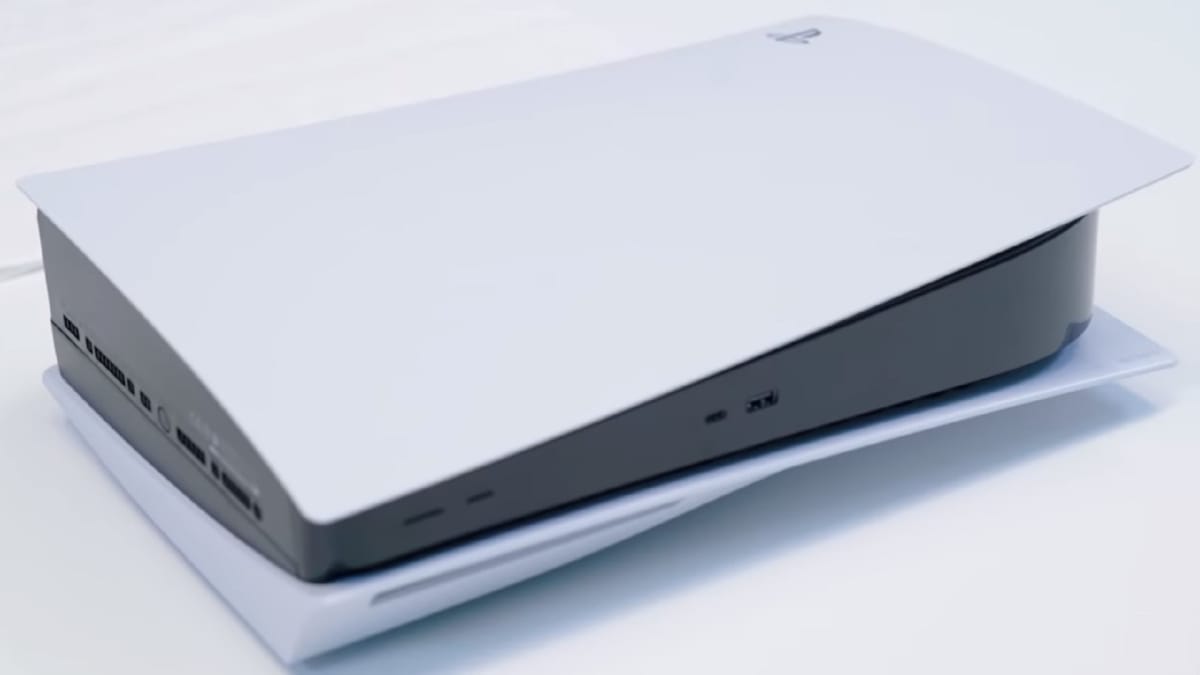Today there was a series of announcements related to the next PlayStation 5 beta update. Among them included 3D spatial audio for normal TV sound systems, new UI improvements, and more but the update catching most people's eyes is that some users will be able to expand the PS5 SSD storage. This isn't any external storage for cold storing PS5 and PS4 games either, this update will unlock the use of the M.2 drive slot hidden away on the PlayStation 5.
What are the PlayStation 5 M.2 SSD Requirements?
The expandable M.2 drive has been a selling point for the PlayStation 5 for some time and while it wasn't available at launch many have speculated over what type of M.2 will be required. The M.2 SSD requirement for the PS5 SSDs will be as follows:
- PCIe 4 M.2 NVMe SSD
- Capacity can be between 250 GB up to 4 TB
- M.2 SSD will require a heatsink in either single or double-sided format. (Some M.2 SSD will come with a heatsink, but if not then one can be purchased separately.)
- Sequential read speed of 5,500 MB/s or faster
- Must be a form factor of M.2 type 2230, 2242, 2260, 2280, or 22110
- M.2 SSD that does NOT support HMB (Host Memory Buffer) is also recommended for performance as PS5 does not support this
One thing that might stand out to readers is the speed requirement. This is to ensure that games running from the M.2 SSD expansion are able to run just as fast as those from the internal, ensuring that there's still a speedy baseline of hardware in the PS5. This will continue developers to build their game to deliver the "next-gen" experience that we've seen so heavily pushed in marketing for games like Ratchet and Clank and Astro's Playroom, so far the first PS5 only first-party titles from PlayStation Studios.
What PlayStation 5 M.2 SSD do Sony recommend?
At the moment Sony is stating that as long as the M.2 SSD you're using fits the above specifications games should perform as if they're on the internal. As always though with third-party products there's a chance that that might not be the case. Their official M.2 SSD support page explains the following "Not all games are necessarily playable with the exact same performance provided by the PS5 console’s internal Ultra-High Speed SSD, even where the M.2 SSD device’s sequential read speed is faster than 5500MB/s."
The first officially announced and supported M.2 SSD for the PlayStation 5 is the Seagate Firecuda 530. The interesting thing about this PS5 SSD is that it doesn't come with any heatsink, which means that even though a heatsink is only $10-$20 that's an additional price, and that the sequential read speed is 7,300 MB/s. Safe to say it's more than fast enough to handle the speeds of PS5 games. You can but the Seagate Firecuda in a number of size options:
- 500 GB for $149.99
- 1 TB for $254.99
- 2 TB for $514.99
- 4 TB for $999.99
This increased read speed, as well as the new PCIe 4.0 standard is what's going to do a lot to ramp up the price on these kinds of SSD. Yes you might have just bought a SSD for half the price, but it won't be nearly up to scratch in comparison to the Firecuda 530. Taking a look online for some comparable M.2 SSDs we were able to find the following
- SAMSUNG 980 PRO M.2 2280 1TB PCI-Express Gen 4.0 for $239.99 but you'll need to purchase a heatsink
- Corsair MP600 Pro M.2 2280 1TB PCIe Gen 4.0 for $199.99 but you'll need to purchase a heatsink
- WD_Black 1TB SN850 NVMe Internal Gaming SSD Solid State Drive with Heatsink for $249.99
Chances are though as M.2 SSD using PCIe 4.0 begin to get more common, and speeds of 5,500 MB/s get more common the prices of these kinds of NVMe drives will continue to decrease.
Comparing Sony's PlayStation 5 M.2 strategy with the Xbox Series X|S Storage Expansion Card
When both next gen consoles were announced and highlighting their specs while Sony wasn't activating their PS5 M.2 SSDs at launch the Xbox released with a $219.99 expansion card. The purpose of the card was to perfectly match the internal memory and while it's a proprietary format was designed to ensure that the performance would be consistent between the internal and expansion. Many at launch saw that price, almost half that of the console itself, and were struck by immediate sticker shock. It's interesting to see now that we have a clearer view of what Sony is recommended for M.2 SSD for the PlayStation 5 that the prices are surprisingly comparable... for now.
What we now have is two different approaches and it's difficult to weigh up pros and cons against one another. SIE can't promise consistent performance across every brand of M.2 SSD, something that Xbox can with their one option. Three to five years from now though could Xbox end up in a similar situation as the Vita where the Storage card can't afford to lower its proprietary price while the Firecuda 530 has a holiday sale deal for $100.
What do you think of the PlayStation 5 M.2 SSD requirements? Have you been yearning for more space on your PS5 hard drive? Are you planning on giving it a few years?







